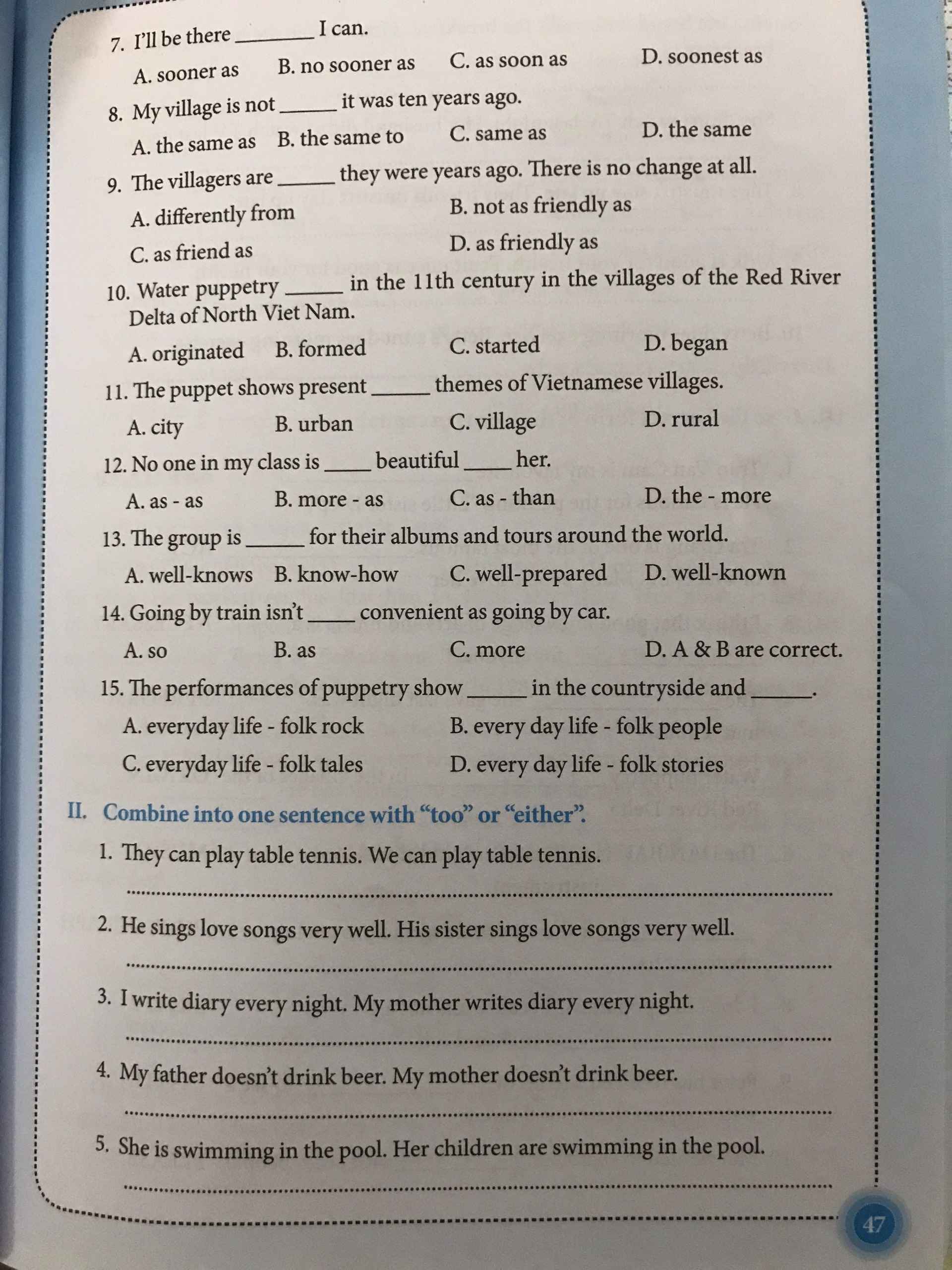
K
Khách
Hãy nhập câu hỏi của bạn vào đây, nếu là tài khoản VIP, bạn sẽ được ưu tiên trả lời.
DL
2

Các câu hỏi dưới đây có thể giống với câu hỏi trên

PM
1


19 tháng 7 2017
Trang I bạn đăng mk đã làm,mk chỉ đăng tiếp trang II thhoi nhé.

TT
1

LT
4

TT
1
NT
4

A
4

NN
22 tháng 10 2021
Ex2 :
1 . B
2 . C
3 . A
4 . C
5 . D
Ex3 :
1 . A
2 .C
3 .B
4 .D
5 .A
6 .D
Ex4
1 . A
2 .C
3.D
4A
5C
6A
7C
8D
9A
10 C




















 Help me
Help me















4.Doesn't write
5.Doesn't use
5.Are given
was written
wasn't used
weren't given
bị động ở QKĐ: was/ were + Vp2